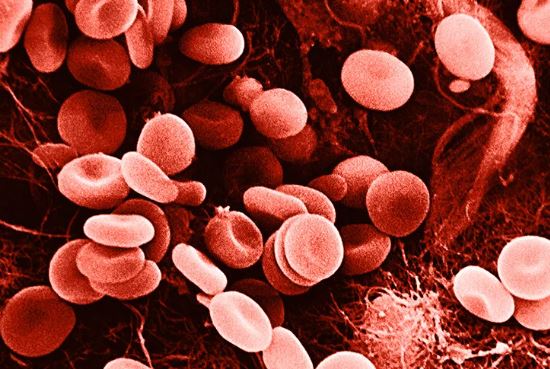As we observe International Thalassaemia Day, it is important to raise awareness about the importance of early detection and treatment for this condition. Early diagnosis and treatment of Thalassaemia can significantly improve the quality of life for patients, and in some cases, can be life-saving. Thalassaemia is a genetic blood disorder that affects the production of hemoglobin, the protein responsible for carrying oxygen throughout the body. Individuals with thalassaemia have an abnormal hemoglobin gene that causes a decrease in the production of hemoglobin. This can lead to anemia and other serious health complications if left untreated. Early detection and treatment of thalassaemia are critical to prevent complications and improve quality of life for those living with the condition.
Understanding Thalassaemia: What is it and Why is Early Detection Important?
Thalassaemia is an inherited blood disorder that is passed down from parents to their children. It is caused by mutations in the genes that control the production of hemoglobin. Thalassaemia can be classified into two main types: alpha and beta thalassaemia. The severity of the condition can range from mild to severe, depending on the number of abnormal genes inherited.
Early detection of thalassaemia is crucial as it can help prevent serious health complications such as heart disease, bone deformities, and growth delays. Individuals who are at risk of thalassaemia should undergo genetic testing to determine if they carry the abnormal gene. Early diagnosis can also help individuals and their families make informed decisions about family planning and pregnancy.
Symptoms and Diagnosis: When to Seek Medical Attention for Thalassaemia
Symptoms of thalassaemia can vary depending on the type and severity of the condition. Common symptoms include fatigue, weakness, pale skin, jaundice, and bone deformities. Children with severe thalassaemia may experience delayed growth and development.
A blood test can diagnose thalassaemia. The test measures the amount of hemoglobin in the blood and identifies any abnormalities in the hemoglobin gene. If thalassaemia is suspected, a doctor may also perform additional tests such as a complete blood count (CBC) and iron studies.
Benefits of Early Detection and Treatment for Thalassaemia: What You Need to Know
Early detection and treatment of thalassaemia can significantly improve outcomes for those living with the condition. Treatment can help alleviate symptoms and prevent serious complications such as heart disease, liver problems, and bone deformities. Treatment options for thalassaemia include blood transfusions, iron chelation therapy, and stem cell transplantation.
The Role of Genetic Testing in Early Detection and Prevention of Thalassaemia
Genetic testing can help identify individuals who carry the abnormal hemoglobin gene and are at risk of developing thalassaemia. Genetic counseling is recommended for individuals and families who carry the abnormal gene to help them make informed decisions about family planning and pregnancy.
How to Manage Thalassaemia: Treatment Options and Self-Care Tips
Managing thalassaemia involves ongoing treatment and self-care. Blood transfusions are often necessary for individuals with severe thalassaemia to replace the missing hemoglobin. Iron chelation therapy can help reduce the risk of iron overload, a common complication of thalassaemia treatment. Self-care tips include maintaining a healthy diet, staying physically active, and avoiding exposure to infections.
Thalassaemia Treatment Costs: Understanding the Expenses Involved
Thalassaemia treatment can be expensive, especially for those who require frequent blood transfusions and ongoing medical care. The costs of treatment include blood transfusions, iron chelation therapy, and other medical expenses. It is essential to understand the costs involved and plan accordingly.
Medical Insurance Coverage for Thalassaemia Treatment: What You Need to Know
Medical insurance coverage for thalassaemia treatment can vary depending on the type of insurance and the specific plan. It is important to review insurance policies carefully and understand the coverage for thalassaemia treatment. Some insurance plans may not cover all aspects of thalassaemia treatment, including genetic testing and stem.
Billing and Reimbursement for Thalassaemia Treatment: Navigating the Complexities
Navigating the complex process of medical billing and reimbursement for thalassaemia treatment can be challenging. It is important to understand the different codes and procedures involved in billing for thalassaemia treatment and to work closely with healthcare providers to ensure accurate billing and timely reimbursement.
Financial Assistance for Thalassaemia Treatment: Options for Those in Need
Financial assistance programs may be available to help individuals with thalassaemia manage the costs of treatment. These programs may include government assistance programs, non-profit organizations, and other resources. It is important to research and explore all available options for financial assistance.
The Importance of Access to Affordable Thalassaemia Treatment: Advocating for Change
Access to affordable thalassaemia treatment is a critical issue for individuals and families affected by the condition. Advocating for change at the local, national, and international levels can help raise awareness of thalassaemia and improve access to affordable treatment for all those in need. This includes advocating for government funding for research and treatment, increased access to healthcare services, and improved insurance coverage for thalassaemia treatment.
Conclusion
In conclusion, early detection and treatment of thalassaemia are essential for preventing serious health complications and improving quality of life for those living with the condition. Understanding the symptoms and diagnosis of thalassaemia, the benefits of early detection and treatment, and the costs and financial assistance options available can help individuals and families navigate the complexities of thalassaemia treatment and advocate for change to improve access to affordable treatment for all.









